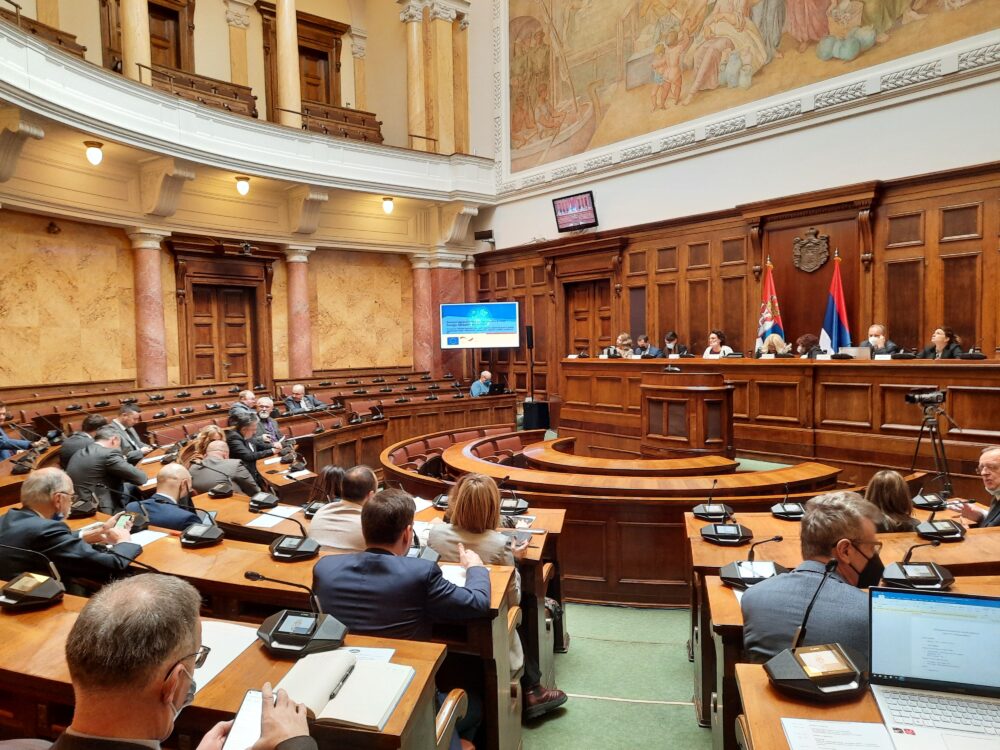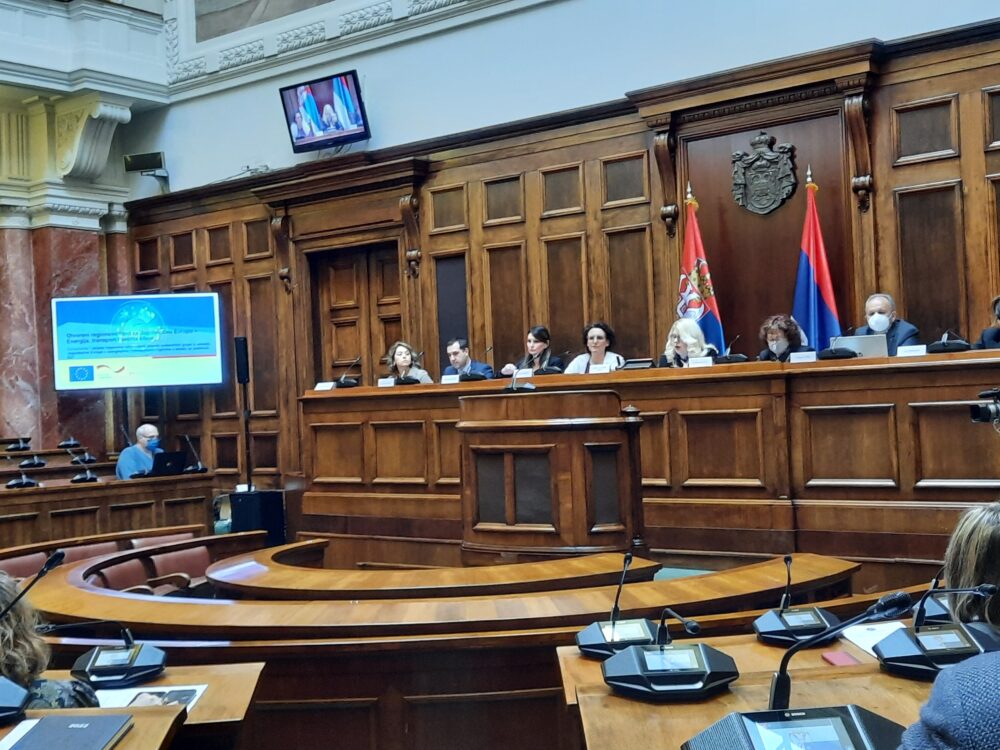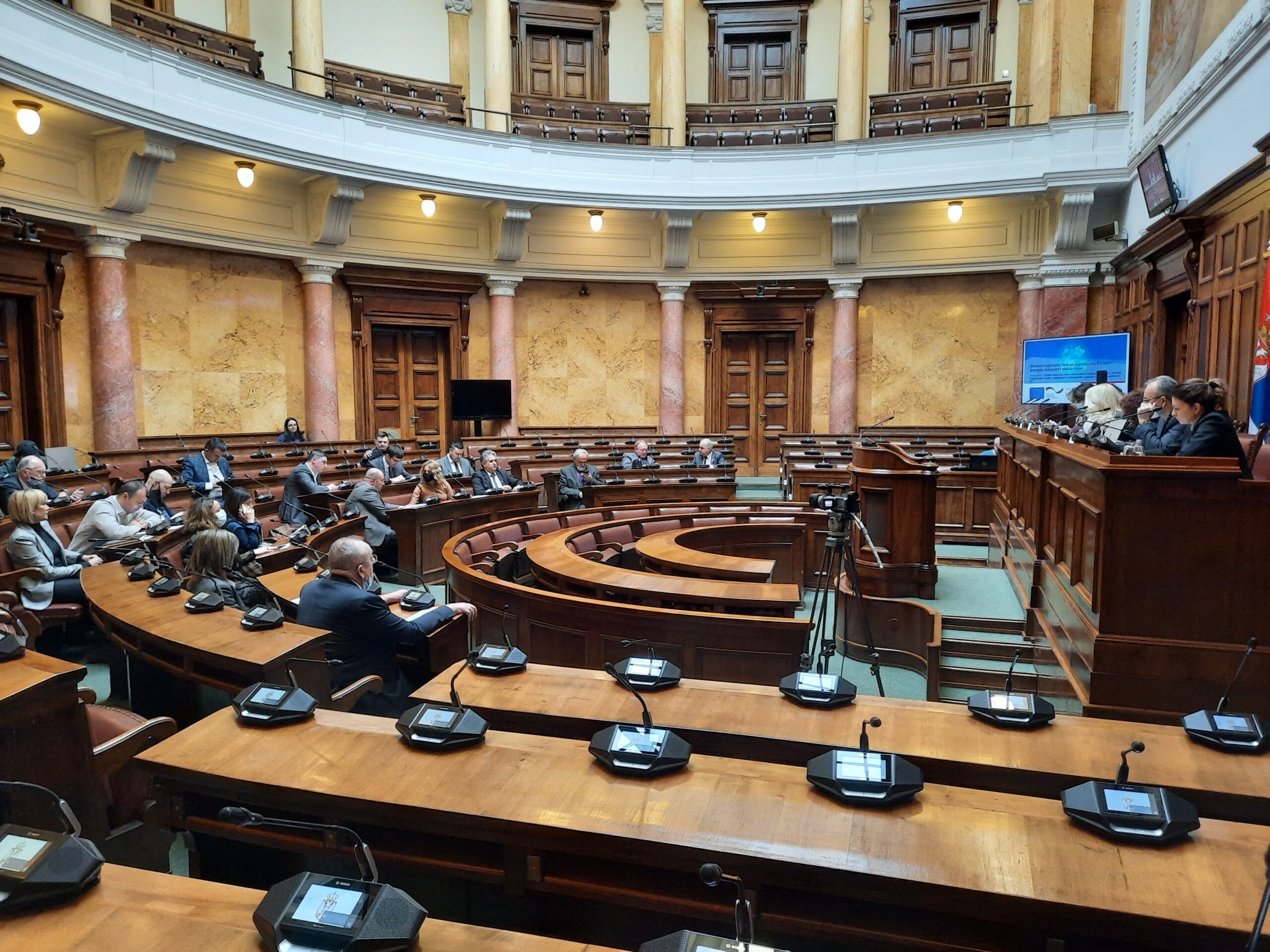The second meeting of the Parliamentary Forum for Energy Policy (PFEPS) was held on Tuesday, February 8, in the House of National Assembly. The topic of the meeting was the financing of Cluster IV in the period of energy crises.
In the introduction, Aleksandra Tomić – President of PFEPS and Committee for Finance, Budget, and Control of Public Expenditures, pointed out the intention to comprehensively review the effects of changes in the energy market, and map future steps to adequately adapt to the current situation. The representative of the German Agency for International Cooperation (GiZ), Svetlana Bačanin, presented the functioning of the Open Regional Fund for Southeast Europe (ORF).

The meeting continued with the presentation of the process of drafting the Integrated National Plan for Energy and Climate (NEKP). Maja Matija Ristić, State Secretary of the Ministry of Mining and Energy, said that Serbia’s goal is to be a leader in the region in terms of future energy policies. She shared that the NECP is based on 5 dimensions: decarbonization; energy efficiency; energy security; internal energy market; innovation, competitiveness, and research. The key task in the development of the NECP will be to create scenarios from which the goals of the future energy policy will be defined. It was pointed out that the NECP sends a message that Serbia is committed to a healthy environment, climate neutrality, and economic growth. Also, Ms. Matija Ristic announced the realization of a public debate on the Draft NECP which will last for a month during March.
Ljubinko Savić, Deputy Secretary of the Association for Energy and Energy Mining of the Serbian Chamber of Commerce, evaluated the large investments in the energy sphere until 2050 as key and deserving of a complete change in the energy sector in Serbia. The lack of professional staff in this field and the need to educate new generations of scientists who will bring about the energy transition are emphasized.
Mirjana Jovanović from the Belgrade Open School emphasizes that it is important to open a wide debate on the NECP, but also that the civil sector is worried about the announced public consultations in March because there is a danger that this process will be overshadowed by the election campaign. “This is not just another document that the EU is pushing us to, this is a document that we need and with which we are following the trends that are happening all over the world, and above all in the EU, which has decided to become climate neutral by 2050 – this is our map to remain able to participate in trade with the EU, ” said the BOS program manager.

Participants also had the opportunity to discuss planned investments in this area, as well as Green Bonds. Ana Tripović, Director of the Public Debt Administration, said that last year there was an emission of Green Bonds in the amount of one billion euros with a maturity of 7 years, which is the largest activity in Serbia’s capital market, and one of the largest emissions of this type in Europe. Eligible projects for financing from Green Bonds can be found on the website of the Ministry of Finance.
Dušan Čarkić, Acting Assistant Minister of European Integration, pointed out that 44% of all funds in IPA III will be allocated to the green transition. During the lively discussion, the most important issues were the distribution network of Serbia, the strategy of energy development and sustainability and the attractiveness of energy in times of energy crisis.
The meeting was attended by MPs, members of the Parliamentary Forum for Energy Policy of Serbia and the informal Green Parliamentary Group.
This thematic meeting was organised within the component Capacity Development of informal Green Parliamentary Group from South-East Europe on EU-compliant Energy and Transport Goals implemented by GIZ on behalf of the German Federal Government within the Open Regional Fund for South-East Europe – Energy, Transport and Climate Protection (ORF-ETC).













